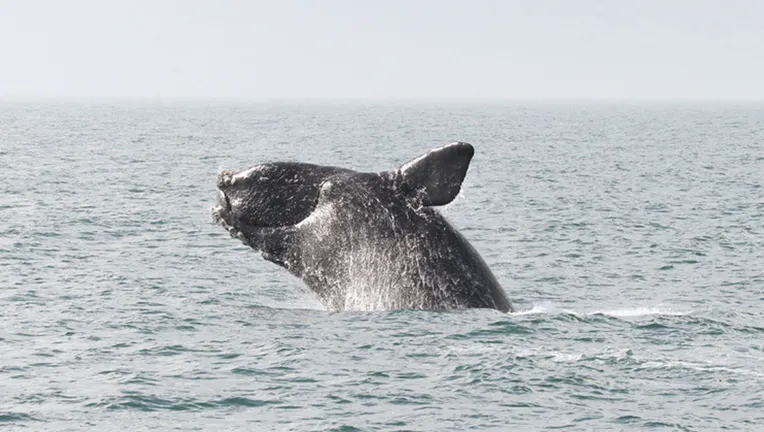By: Summer Lin
July 15, 2024, a critically endangered whale, one of just 350 whales of its species, was seen off the coast of Ireland for the first time in 114 years. The Northern Atlantic right whale was seen tail fluking (lifting its tail above the surface before a deep dive) in Donegal Bay off the northwest coast. This caused researchers to encourage people to watch from the shore rather than from boats.
Researchers knew that Northern Atlantic Right whales were most susceptible to ship strikes, and even a collision with a small vessel could be fatal. Even one whale death could have a massive effect on the population.
“There is an enormous onus on us all to ensure this whale remains as long as it needs in Donegal Bay, where it’s most likely feeding on tiny copepods, without having to run the gauntlet of small craft and sightseers,” the Irish Whale and Dolphin Group said in the press release. “This is our chance to help a population of whales on the very brink. Please give it space.”
Many reasons Right Whales are endangered are related to human activities and interference. When humans lose or abandon nets, many fish get trapped in them and starve or get hunted. One of the sea animals that get trapped is the Northern Right Whale.
Ship strike is also one of the many reasons that the whale is endangered. Human activity is also causing climate change, making waters warmer and making the prey Right Whales hunt die off, starving the whales. When humans do certain activities underwater, they cause ocean noise, cutting off the communication of the whales and increasing their sound level.
The Northern right whale is almost extinct due to many human activities, including ship strikes, getting trapped in abandoned nets, climate change, etc. However, if people recycle, be careful of where they throw trash, and be resourceful, they can save the environment, the Northern Atlantic whale, and many other species of animals.











